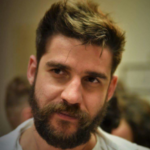Co-designing play activities and monitoring tools with smart interactive toys to support early intervention in Autism Spectrum Disorder and comparable neurodevelopmental conditions
- workshop at the ACM Interaction Design and Children (IDC) conference -
Call for participation
Interactive technologies are promising tools for therapists to promote the development of social competencies in the early treatment of Neurodevelopmental Disorders (ND). To make these tools effective, usable and reliable in real scenarios, input from potential users is fundamental, in order to obtain important feedback and thus improve the technology.
During the workshop, addressed mainly to therapists, but also to researchers, educators, associations and software developers, we will show the experimental technological tools developed in the European projects PlusMe and IM-TWIN, including the promising results obtained in pilot tests with children with ND (see figures and videos below). During the workshop, the tools and results will be then discussed with the audience, in order to improve the current system and to get the participants' opinions about further potential use in ND.
Videos of technologies

From left to right: (fig. 1) children with Typical Development playing with the interactive toy panda PlusMe; (fig. 2, 3) children with neurodevelopmental disorders, playing with panda PlusMe and octopus X-8, during therapeutic sessions; (fig. 4) AI-based monitoring tools to evaluate the social interactions between child and therapist.
Short videos, introducing the audience to the technologies which will be discussed at the workshop, are available at the following links:
- Transitional Wearable Companions panda PlusMe and octopus X-8: two interactive soft toys, designed to stimulate the social engagement during shared play.
- AI-based monitoring tool to detect eye contact, the eye contact detector: a tool to evaluate the eye contact between child and therapist.
- AI-based monitoring tool to detect socially relevant interactions the therapy Aid Tool: a tool to evaluate the social interaction between child and therapist, while playing with panda PlusMe.
Further videos coming soon!
How to participate
The attendees (up to 15 participants allowed) are required to fill out an online form, to evaluate their interest in participation. It is also possible (not mandatory) to submit a brief position paper (2-4 pages, references not mandatory) on one of the following topics:
- personal experience in using technology, reporting observations on the potential and limitations found;
- proposals about alternative use of panda PlusMe and octopus X-8;
- suggestions about improvements or integrations of the proposed AI-based monitoring tools.
Papers must be sent to Beste Özcan (main contact) at mail beste.ozcan@istc.cnr.it, using the standard ACM, single column, Conference Proceeding Primary Article template. If accepted, the papers will be discussed during the workshop; in this case, at least one author must attend the workshop.
For any question, please contact Beste Özcan beste.ozcan@istc.cnr.it or Valerio Sperati valerio.sperati@istc.cnr.it
UPDATE 1 (20 May): for the participants interested to the workshop only, it is now possible to register for the event ($125, see fee link), without the need to also register for the main conference! Please, follow the instructions given in the registration link: https://idc.acm.org/2023/registration.
UPDATE 2 (20 May): for the participants who cannot be-in person, is it now possible to attend virtually the workshop! A dedicated Zoom account will be prepared to support virtual participants.
Important dates (UPDATED!)
- deadline for submission: May 1, 00:00 UTC
- author notification: May 10
Workshop organisation
The 4 hours workshop will be organised as follows:
- Welcome and introduction (30 min): the organisers and the participants will introduce themselves; a brief introduction to the European projects IM-TWIN and PlusMe will be also given.
- Demos (1h): the organisers will present live demos of the tools that are currently in experimented with ASD children: (a) the panda PlusMe and octopus X-8; (b) a pair of camera glasses to detect the eye contact between child and therapists; (c) a monitoring tool, to detect relevant social behaviour in the videos of the experimental sessions.
- Experimental results (30 min): the organisers will describe the current results, obtained using the TWCs in pilot experiments with ASD children.
- Round table: feedback and new proposals (1h): attendees will provide feedback about the tools and will be able to propose improvements, enhancements and modifications. According to the user’s proposal, the reference institution could be considered for inclusion in the experimental testing of the tools;
- Papers presentation (1h): the selected papers will be presented by the users, to highlight both the potential and limitations of the use of technology in early intervention.
Workshop goals
The workshop has 2 main goals:
- disseminate the results of our current research;
- stimulate the inclusion of potential users (mainly therapists, but also other interested stakeholders) in the design process of the tools which are currently under development. More specifically we aim to collect suggestions and opinions about: (a) possible, additional play activities, which can exploit the full potential of the TWCs; (b) potential improvements of the AI-based monitoring tools; (c) potential use of the tools with ND.
Organisers
The workshop organisers are researchers involved in scientific projects aiming to develop novel technologies, to support early intervention in ASD.
 |
Beste Ozcan (main contact) has a PhD in Interaction Design; she is currently a research fellow at the Institute of Cognitive Sciences and Technologies, National Research Council of Italy (ISTC-CNR). She contributed to the concept of Transitional Wearable Companions and designed the panda PlusMe and the octopus X-8. |
|
|
 |
Valerio Sperati has a MA in experimental psychology; he is currently a research fellow at the ISTC-CNR. He developed the early software and hardware prototypes of TWCs. |
|
|
 |
Flora Giocondo has a MA in experimental psychology; she is currently a research fellow at the ISTC-CNR. She is carrying on the pilot experiments using the TWCs with ND children. | ||
 |
Jonata Tyska Carvalho has a PhD in Computer Science; he is an Associate Professor at the Federal University of Santa Catarina, UFSC (Brazil). His research group is developing some monitoring tools, to evaluate the children’s behaviour during play sessions. |
|
|
 |
Gianluca Baldassarre has a PhD in Computer Science; he is the Research Director at the ISTC-CNR and the coordinator of the European projects PlusMe and IM-TWIN. |

